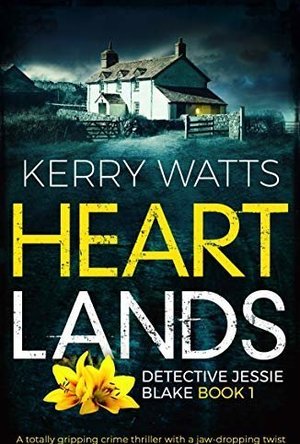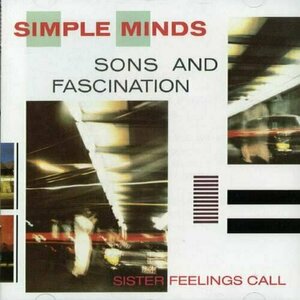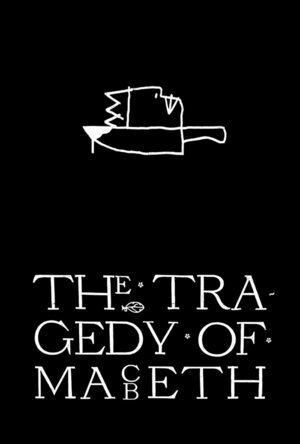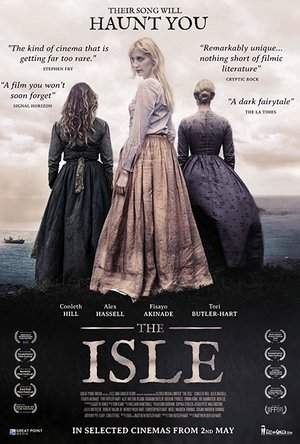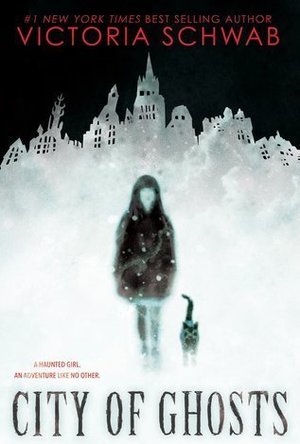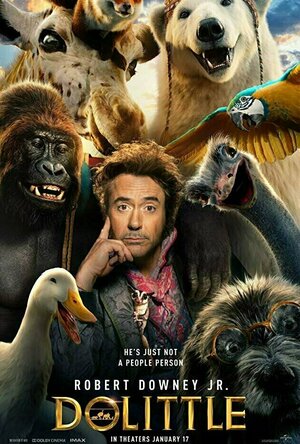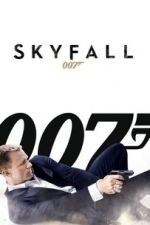Search
Billie Wichkan (118 KP) rated Heartlands (Detective Jessie Blake #1) in Books
May 22, 2019
Call it mothers intuition, but I knew she was dead the moment she was late home. As I listened to her phone ring and ring, thats when I knew for sure. My little girl was gone.
Fifteen-year-old Shannon Ross is missing and her parents are distraught. With her long blonde hair, easy laugh and perfect grades, shes the girl everyone at school wants to be.
Detective Jessie Blake is called to Inverlochty, the missing girls home town in the Scottish Highlands, and finds Shannon was keeping a diary full of friends and neighbors secrets. She knows the kind, outgoing boy whos sleeping with his teacher and the quiet woman whos been having an affair with her best friends husband.
Just as Jessie and her team are beginning to understand Shannons complicated world, her lifeless body is found on an ice-cold river bank on the outskirts of town. And when Jessie tells Shannons family the heart-breaking news, she senses something isnt right. The loving family is beginning to show cracks. Did Shannon know about her fathers alcohol problems and violent past? Why does Shannons mother keep finding excuses to leave the room, when Jessie wants to ask her questions?
As Jessie begins to piece together the final days of Shannons life, her own history comes back to haunt her. Putting aside her personal demons, Jessie vows to do whatever it takes to catch Shannons killer. But what if the killer is ready to strike first?
Totally captivating and addictive read. I loved this book! There are two storylines. One routed in the past about a brutally raped and murdered school girl and her young killers as they face trial and juvenile detention. One in the present, a missing school girl, Shannon, baring all the similarities of the case from the past - or so it seems.
There are a lot of characters introduced and it ca be a bit overwhelming but persevere as the novel is one worth reading.
The plot is very well written in my opinion and it does flow well. The main characters are well written and enjoy them.
Very compelling and suspenseful read.
I look forward to more in the series as it develops and hope to get more backstory on the detective.
Highly recommend!
My thanks to Bookouture and Netgalley for the ARC.
Fifteen-year-old Shannon Ross is missing and her parents are distraught. With her long blonde hair, easy laugh and perfect grades, shes the girl everyone at school wants to be.
Detective Jessie Blake is called to Inverlochty, the missing girls home town in the Scottish Highlands, and finds Shannon was keeping a diary full of friends and neighbors secrets. She knows the kind, outgoing boy whos sleeping with his teacher and the quiet woman whos been having an affair with her best friends husband.
Just as Jessie and her team are beginning to understand Shannons complicated world, her lifeless body is found on an ice-cold river bank on the outskirts of town. And when Jessie tells Shannons family the heart-breaking news, she senses something isnt right. The loving family is beginning to show cracks. Did Shannon know about her fathers alcohol problems and violent past? Why does Shannons mother keep finding excuses to leave the room, when Jessie wants to ask her questions?
As Jessie begins to piece together the final days of Shannons life, her own history comes back to haunt her. Putting aside her personal demons, Jessie vows to do whatever it takes to catch Shannons killer. But what if the killer is ready to strike first?
Totally captivating and addictive read. I loved this book! There are two storylines. One routed in the past about a brutally raped and murdered school girl and her young killers as they face trial and juvenile detention. One in the present, a missing school girl, Shannon, baring all the similarities of the case from the past - or so it seems.
There are a lot of characters introduced and it ca be a bit overwhelming but persevere as the novel is one worth reading.
The plot is very well written in my opinion and it does flow well. The main characters are well written and enjoy them.
Very compelling and suspenseful read.
I look forward to more in the series as it develops and hope to get more backstory on the detective.
Highly recommend!
My thanks to Bookouture and Netgalley for the ARC.
James Dean Bradfield recommended Sons And Fascination by Simple Minds in Music (curated)
BankofMarquis (1832 KP) rated The Tragedy of Macbeth (2021) in Movies
Jan 25, 2022
Good...not Great...kind of like Macbeth
The history of cinema is littered with adaptations of William Shakespeare plays. Some are very successful - Olivier’s HAMLET (1948), Zeffirelli’s ROMEO & JULIET (1968) and, especially, Kenneth Branagh’s HENRY V (1989), my favorite film Shakespeare adaptation. And, of course, some are less than successful, like HAMLET starring Mel Gibson (1990).
Joel Cohen’s adaptation of MACBETH falls somewhere in between, more for the former but veering towards the latter.
Based on my favorite Shakespeare play, THE TRAGEDY OF MACBETH follows the rise and fall of a Scottish Thane who becomes King thanks to the help (and backstage machinations) of his wife…and a murderous deed. This adaptation should really be called “THE BEST OF MACBETH” as it takes a fairly lengthy stage play and compresses it into 1 hour and 47 minutes of Cinema time.
There is plenty here that works, starting with the sense of unreality that Cohen sets this version of this story in. He filmed the entire movie on a soundstage that has a constant haziness to the background, making one think that everything going on is a dream…or maybe a memory…or maybe taking place on some parallel ethereal plane and the black and white cinematography emphasizes this point to a perfect degree.
The performances are stellar - starting with the choice to cast both Macbeth and Lady with older actors. Usually, these 2 are cast as “ambitious up and comers” in their late 20’s/early 30’s, but by using 60-something actors Denzel Washington and Frances McDormand, it makes these 2 characters more desperate for one last chance at the brass ring and makes the choices these 2 make more understandable. Of course, having Denzel and Frances play these 2 certainly helps, as both are superb thespians who are mesmerizing in their speeches (such as Macbeth’s “Is this a dagger I see before me” and Lady Macbeth’s “Out, out damn spot”).
Along for the ride - and performing strongly in this film - is Brendan Gleeson (King Duncan), Corey Hawkins (MacDuff), Bertie Carvel (Banquo) and Harry Melling (yes, Dudley Dursley of Harry Potter fame) as Malcolm. Also…it was fun to see Ralph Ineson (the Captain that pretty much starts the show), Stephen Root (the Porter) and Jefferson Mayes (the Doctor) showing up in brief, one scene cameos along the way.
But, special notice needs to be paid to Kathryn Hunter (the Witches) and Alex Hassell (Ross) who elevate both of these roles to something more than I’ve seen previously. Sure, the Witches…with such speeches as “Bubble, Bubble, Toil and Trouble”…are the “showey” roles in this script, but in the hands of veteran Stage Actor Hunter, it turns into something much, much more. Cohen does more with the Witches than I’ve seen previously done and it works well - quite possibly to the tune of an Academy Award Nomination as Best Supporting Actress for her. Also working well is the use of the character Ross as sort of an “agent” of the Witches. This role, as written by The Bard of Avon, is pretty much a throw away, but Cohen uses it as something more and Hassell delivers the goods in an interesting way.
So, if the acting is good, the setting appropriately mysterious and the Direction generally strong, why did I not connect more with this film? I think it falls to the adaptation of the play by Mr. Cohen. By necessity, he pares down the film and it feels like it just jumps from speech to speech. As I’ve said earlier, each speech is terrific and the performers present these words very, very well, but they didn’t coalesce into anything whole that I could get emotionally attached to. This film is an “abridged” version of the Scottish play and it shows, Cohen opts to keep in the speeches (as is necessary) but that comes at the cost of losing the scenes between characters that would more strongly tie this film apart.
It’s still a worthy entry in the “Shakespeare on Film” canon - and one that is “above average” but falls far short of greatness - kind of like Macbeth himself.
Letter Grade: A-
8 stars (out of 10) and you can take that to the Bank(ofMarquis)
Joel Cohen’s adaptation of MACBETH falls somewhere in between, more for the former but veering towards the latter.
Based on my favorite Shakespeare play, THE TRAGEDY OF MACBETH follows the rise and fall of a Scottish Thane who becomes King thanks to the help (and backstage machinations) of his wife…and a murderous deed. This adaptation should really be called “THE BEST OF MACBETH” as it takes a fairly lengthy stage play and compresses it into 1 hour and 47 minutes of Cinema time.
There is plenty here that works, starting with the sense of unreality that Cohen sets this version of this story in. He filmed the entire movie on a soundstage that has a constant haziness to the background, making one think that everything going on is a dream…or maybe a memory…or maybe taking place on some parallel ethereal plane and the black and white cinematography emphasizes this point to a perfect degree.
The performances are stellar - starting with the choice to cast both Macbeth and Lady with older actors. Usually, these 2 are cast as “ambitious up and comers” in their late 20’s/early 30’s, but by using 60-something actors Denzel Washington and Frances McDormand, it makes these 2 characters more desperate for one last chance at the brass ring and makes the choices these 2 make more understandable. Of course, having Denzel and Frances play these 2 certainly helps, as both are superb thespians who are mesmerizing in their speeches (such as Macbeth’s “Is this a dagger I see before me” and Lady Macbeth’s “Out, out damn spot”).
Along for the ride - and performing strongly in this film - is Brendan Gleeson (King Duncan), Corey Hawkins (MacDuff), Bertie Carvel (Banquo) and Harry Melling (yes, Dudley Dursley of Harry Potter fame) as Malcolm. Also…it was fun to see Ralph Ineson (the Captain that pretty much starts the show), Stephen Root (the Porter) and Jefferson Mayes (the Doctor) showing up in brief, one scene cameos along the way.
But, special notice needs to be paid to Kathryn Hunter (the Witches) and Alex Hassell (Ross) who elevate both of these roles to something more than I’ve seen previously. Sure, the Witches…with such speeches as “Bubble, Bubble, Toil and Trouble”…are the “showey” roles in this script, but in the hands of veteran Stage Actor Hunter, it turns into something much, much more. Cohen does more with the Witches than I’ve seen previously done and it works well - quite possibly to the tune of an Academy Award Nomination as Best Supporting Actress for her. Also working well is the use of the character Ross as sort of an “agent” of the Witches. This role, as written by The Bard of Avon, is pretty much a throw away, but Cohen uses it as something more and Hassell delivers the goods in an interesting way.
So, if the acting is good, the setting appropriately mysterious and the Direction generally strong, why did I not connect more with this film? I think it falls to the adaptation of the play by Mr. Cohen. By necessity, he pares down the film and it feels like it just jumps from speech to speech. As I’ve said earlier, each speech is terrific and the performers present these words very, very well, but they didn’t coalesce into anything whole that I could get emotionally attached to. This film is an “abridged” version of the Scottish play and it shows, Cohen opts to keep in the speeches (as is necessary) but that comes at the cost of losing the scenes between characters that would more strongly tie this film apart.
It’s still a worthy entry in the “Shakespeare on Film” canon - and one that is “above average” but falls far short of greatness - kind of like Macbeth himself.
Letter Grade: A-
8 stars (out of 10) and you can take that to the Bank(ofMarquis)
Hazel (1853 KP) rated Into the Dim (Into the Dim, #1) in Books
Dec 17, 2018
<i>This ARC was provided by the publisher via NetGalley in exchange for an honest review
Into The Dim</i> by Janet B. Taylor begins with an empty coffin. Fragile sixteen year old Hope is at her mother’s memorial service after her mother’s body was unrecovered after a horrific earthquake. Despite the opinion of her stepfather’s family, Hope is convinced that her mother is still alive. However she has not time to convince anyone before she is shipped off to the Scottish Highlands to spend time with her mother’s sister, Lady Lucinda Carlyle.
Hope finds herself at Christopher Manor, a forbidding ancient mansion that reminds her of <i>Hogwarts</i> (I love that <i>Harry Potter</i> is easily mentioned in many contemporary novels these days! There is also a <i>Doctor Who</i> reference in this book). Despite the old-fashioned setting, the inhabitants are the complete opposite. Firstly there is Phoebe, a bubbly blue-haired girl who is excited about Hope’s arrival at the manor. Phoebe’s brother, Collum, on the other hand, has a contrasting personality. Then there is Lu, who, despite her title, is younger than some may initially imagine her to be.
Through these new characters, Hope learns that her mother is indeed still alive, but trapped somewhere beyond all logic and reason. What is worse, Hope, who is practically scared of her own shadow, along with Phoebe and Collum are the only people who can rescue her. So begins their dangerous but exciting adventure.
<i>Into The Dim</i> is both a contemporary and historical novel, with the science fiction element of time travel thrown in. Time travel is nothing new in fiction, and Taylor’s idea is even based upon the scientist, Nikola Tesla’s discoveries. The storyline itself is a bit of fun with witty characters and humorous banter, yet there is so much more to it than that. Taylor has concocted enough research to help readers to learn something new. Firstly there is Tesla, as already mentioned, and then there is the knowledge and detail of twelfth century London, in particularly involving Eleanor of Aquitaine.
Although the main characters are in their late teens, younger teenagers can also enjoy<i> Into The Dim</i>. There is the occasional reference to mature content, but this is within the context of a historical period, in which younger readers should probably be aware of already from their school history lessons. If you love this book, look out for the sequel next year!
Into The Dim</i> by Janet B. Taylor begins with an empty coffin. Fragile sixteen year old Hope is at her mother’s memorial service after her mother’s body was unrecovered after a horrific earthquake. Despite the opinion of her stepfather’s family, Hope is convinced that her mother is still alive. However she has not time to convince anyone before she is shipped off to the Scottish Highlands to spend time with her mother’s sister, Lady Lucinda Carlyle.
Hope finds herself at Christopher Manor, a forbidding ancient mansion that reminds her of <i>Hogwarts</i> (I love that <i>Harry Potter</i> is easily mentioned in many contemporary novels these days! There is also a <i>Doctor Who</i> reference in this book). Despite the old-fashioned setting, the inhabitants are the complete opposite. Firstly there is Phoebe, a bubbly blue-haired girl who is excited about Hope’s arrival at the manor. Phoebe’s brother, Collum, on the other hand, has a contrasting personality. Then there is Lu, who, despite her title, is younger than some may initially imagine her to be.
Through these new characters, Hope learns that her mother is indeed still alive, but trapped somewhere beyond all logic and reason. What is worse, Hope, who is practically scared of her own shadow, along with Phoebe and Collum are the only people who can rescue her. So begins their dangerous but exciting adventure.
<i>Into The Dim</i> is both a contemporary and historical novel, with the science fiction element of time travel thrown in. Time travel is nothing new in fiction, and Taylor’s idea is even based upon the scientist, Nikola Tesla’s discoveries. The storyline itself is a bit of fun with witty characters and humorous banter, yet there is so much more to it than that. Taylor has concocted enough research to help readers to learn something new. Firstly there is Tesla, as already mentioned, and then there is the knowledge and detail of twelfth century London, in particularly involving Eleanor of Aquitaine.
Although the main characters are in their late teens, younger teenagers can also enjoy<i> Into The Dim</i>. There is the occasional reference to mature content, but this is within the context of a historical period, in which younger readers should probably be aware of already from their school history lessons. If you love this book, look out for the sequel next year!
James Morrison (7 KP) rated The Isle (2018) in Movies
May 12, 2019
Should have left it on the isle
So i went to see this one at everyman cinema stratford upon avon where they also had a Q+A session with the two directors, alex and the woman who plays the part or the murdered victim was all their.
Now for me and the wife we feel that the film dragged on to long to the point I was falling asleep as it became that boring, i would say that if you liked the VVITCH then you may like this one but if not then its one to avoid as its the same kinda film.
As for fizz and ginger themself well lets just say they had a question possed at them during the Q+A "why did the people leave the island? Was it bacause of the highland clearances, fammine or the weather conditions?" Trying to get themself out of it they said "it was a combination of every thing" well at the end of the Q+A with me and the wife being scottish we had to give them a history lesson, the highland clearances happened in the 1600s after the battle of culloden, now if you know scotland this is the top end of the country and their "island" is not far from glasgow the bottom end of Scotland, added to this the clue highland clearances the island is in the lowlands, and adding even further after the battle of culloden the english pushed north slaughtering anyone wearing a kilt and banded the bagpipes and bonny prince charlie escaped the the closed island before going to france which was the isle of sky where people still live they would have seen that this does not match up.
On top of this the people left the island in the late 1800s, the highland clearances was 1600 so they were 200 years out of date the reason we know this is because the wifes great grand mother lived on the island.
For a film was written over a 2 year period and made on a small budget and film with in 4 weeks with trained actors this film would have been better being dumped in the loch never to be seen by the public but i guess we all need to start some where even if we open our gobs to make ourself look intelligent rather than be honest with the public and say we really dont know why they left
Now for me and the wife we feel that the film dragged on to long to the point I was falling asleep as it became that boring, i would say that if you liked the VVITCH then you may like this one but if not then its one to avoid as its the same kinda film.
As for fizz and ginger themself well lets just say they had a question possed at them during the Q+A "why did the people leave the island? Was it bacause of the highland clearances, fammine or the weather conditions?" Trying to get themself out of it they said "it was a combination of every thing" well at the end of the Q+A with me and the wife being scottish we had to give them a history lesson, the highland clearances happened in the 1600s after the battle of culloden, now if you know scotland this is the top end of the country and their "island" is not far from glasgow the bottom end of Scotland, added to this the clue highland clearances the island is in the lowlands, and adding even further after the battle of culloden the english pushed north slaughtering anyone wearing a kilt and banded the bagpipes and bonny prince charlie escaped the the closed island before going to france which was the isle of sky where people still live they would have seen that this does not match up.
On top of this the people left the island in the late 1800s, the highland clearances was 1600 so they were 200 years out of date the reason we know this is because the wifes great grand mother lived on the island.
For a film was written over a 2 year period and made on a small budget and film with in 4 weeks with trained actors this film would have been better being dumped in the loch never to be seen by the public but i guess we all need to start some where even if we open our gobs to make ourself look intelligent rather than be honest with the public and say we really dont know why they left
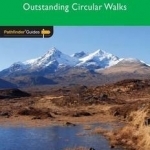
Isle of Skye: 2016
Book
Are you planning a visit to the Isle of Skye? Do you enjoy a walk in the country or a leisurely...

Think and Grow Rich by Napoleon Hill Summary Book
Book and Reference
App
All Purchases of this Audiobook Program Go To Supporting the Napoleon Hill Foundation ...
Naomi Forrest (42 KP) rated City of Ghosts in Books
Dec 31, 2018 (Updated Dec 31, 2018)
I haven't read any Victoria Schwab before though I do have another of her books to read and I know that she is extremely popular, particularly for fans of the young adult genre. This book piqued my interest as a middle grade ghost story so when I found it at a gorgeous second hand book store in Alnwick, Northumberland (you trade your old books in for new ones, it is amazing!), I snapped it up.
Cass is a brilliant protagonist....she's weird, she knows she's weird and she embraces her weird. We live in a world of fashion rules and being told that being different is wrong, even now in 2018. To be the generic carbon copy makes you popular. As Cass says:
'I know you're supposed to want to be one of the popular kids....It just seems like it would be exhausting...Smile, but not too wide. Laugh, but not too loud.'
From this quote alone, you just know that Schwab understands pre-teens and teens. She has been there. Cass is a brilliant character to empower the intended audience and show them it's good to be different. The other big character in the book is Cass's best friend, Jacob, who often has amusing little retorts to Cass and adds humour throughout the book. Oh yes, and he's dead! Apart from this interesting fact and also that he saved Cass's life, the bond between the two is like any other friendship and I get the feeling we will see more of these characters. It is hinted at in the story that Jacob remaining in the world of the living may create problems so it raises a lot of questions about what is coming. I was constantly questioning throughout the book, where did Jacob come from? Did he die saving Cass? Why has he not crossed over? How can he come through the veil? The writing just flows so easily and is told through Cass's eyes. I'm not always the biggest fan of present tense writing in novel's but the use of first person really put me into Cass's world and I had to know about the veil! (I was also a big Ghost Whisperer fan).
This book also has one of my favourite things, a cute little map at the start. However, unlike the often fiction maps that enhance the story, this is Cassidy's map of Edinburgh, which is pretty awesome, especially as I know the places on it, living just an hour's train ride from the city. It shows the main places you would expect, as well as Blackwell's book shop (it is a good Blackwell's too, bigger than Newcastle!). I just love maps in books, I spend ages pouring over them and it really adds to the pictures in your mind.
Of course, being a ghost story, this novel is quite edgy for middle grade but absolutely age appropriate and Schwab is so skillful at pushing the tension right up before diffusing it at just the right point. I get scared even by some young adult ghost stories (no lie) and this one was borderline comfortable for me. The description perfectly set the scene and I truly felt like I was in a foggy graveyard in the dark, or underground in Mary King's Close. I love how Schwab drew on Scottish history and Scotland's love of ghost stories and seamlessly weaves them with the fiction of this ghost hunting American family. I think a lot of children who I come across and potentially across the country may have been to Edinburgh so it makes the story a little bit more accessible while the fantasy creates a boundary from it being too scary. Cass is also a big fan of Harry Potter and the frequent references throughout will really resonate with contemporary children who also love the series.
I loved this book and can't wait for what follows on. It is definitely an exciting addition to a class bookshelf for the ghost story lover but would be a gripping book to share with your class just for pleasure. Brimming with tension, spine tingling atmosphere and completely relevant to the modern day pre-teen, I recommend whole heartedly.
Bob Mann (459 KP) rated Dolittle (2020) in Movies
Feb 23, 2020
A complete mess, but kids will probably love it.
With the words of Mark Kermode's review ringing in my ears ("It's shockingly poor... and that's the same in any language") I was bracing myself when I went to see this latest incarnation of Hugh Lofting's famous animal-chatting character. And I have to agree that it is a shocking mess of a film, given $175 million was poured into this thing. But, and I say this cautiously without first-hand empirical evidence, I *think* this is a movie that kids in the 6 to 10 age range might fall in love with.
Doctor Doolittle (Robert Downey Jnr) - famed animal doctor, with the unique ability to communicate with any animal - is now holed up in his animal sanctuary, a recluse. His beloved wife - adventurer Lily - was lost at sea (in a cartoon sequence that could have just used the same clip from "Frozen"). He's lost the will to practice; and almost lost the will to live.
Impinging on his morose life come two humans: Tommy Stubbings (Harry Collett), a reluctant hunter with a wounded squirrel, and Lady Rose (Carmel Laniado), daughter of the Queen of England. (We'll quietly ignore the coincidence that, after what looks like several years of mourning, these two independently pitch up at Chez Doolittle within ten minutes of each other!).
For the Queen (the omnipresent Jessie Buckley) is dying, and noone (other than us viewers, let in on the deal) suspect foul play might be at work in the form of Lord Thomas Badgley (the ever-reliable Jim Broadbent) and the Queen's old leech-loving doctor Blair Müdfly (a moustache-twiddling Michael Sheen).
Doolittle must engage in a perilous journey to find the only cure that will save both the Queen and his animal sanctuary - the fruit of the tree on a missing island that his long lost love was searching for.
Let's start with the most obvious point first up. Robert Downey Jnr's Welsh accent is quite the most terrible, most preposterous, most unintelligible, most offensive (to the Welsh) attempt at an accent in a mainstream film in movie history. And that's really saying something when you have Laurence Olivier's Jewish father from "The Jazz Singer" and Russell Crowe's English cum Irish cum Scottish cum Yugoslavian "Robin Hood" in the list. Why? Just why? Was it to distance this version from Rex Harrison's? (Since most younger movie goers will be going "Rex who?" at this point, this seems unlikely). It's a wholly curious decision.
It turns RDj's presence in the movie from being an asset to a liability.
The movie has had a tortuous history. Filmed in 2018 at enormous expense, the film completely bombed at test screenings so they brought in more script writers to make it funnier and did extensive additional filming.
I actually disagree with the general view that the film is unfunny. For there are a few points in the movie where I laughed out loud. A fly's miraculous, if temporary, escape was one such moment. The duck laying an egg in fright, another.
However, these seem to stand out starkly in isolation as 'the funny bits they inserted'. Much of the rest of the movie's comedy falls painfully flat.
In terms of the acting, there are the obvious visual talents on show of Michael Sheen (doing a great English accent for a Welshman.... #irony), Jim Broadbent, Jessie Buckley, Joanna Page (blink and you'll miss her) and Antonio Banderas, as the swashbuckling pirate king cum father-in-law.
But the end titles are an amazing array of "Ah!" moments as the vocal performances are revealed: Emma Thompson as the parrot; Rami Malek as the gorilla; John Cena as the polar bear; Kumail Nanjiani at the ostrich; Octavia Spencer at the duck; Tom Holland as the dog; Selena Gomez as the giraffe; Marion Cotillade as the fox, Frances de la Tour as a flatulent dragon and Ralph Fiennes as an evil tiger with mummy issues. It's a gift for future contestants on "Pointless"!
There are a lot of poe-faced critics throwing brick-bats at this movie, and to a degree it's deserved. They lavished $175 million on it, and it looked like it was going to be a thumping loss. (However, against all the odds, at the time of writing it has grossed north of $184 million. And it only opened yesterday in China. So although not stellar in the world of blockbuster movies it's not going to be a studio-killer like "Heaven's Gate").
And I suspect there's a good reason for that latent salvation. I think kids are loving this movie, driving repeat viewings and unexpected word of mouth. It is certainly a family friendly experience. There are no truly terrifying scenes that will haunt young children. A dragon-induced death, not seen on screen, is - notwithstanding the intro Frozen-esque cartoon sequence - the only obvious one in the movie and is (as above) played for laughs. There are fantastical sets and landscapes. Performing whales. A happy-ending (albeit not the one I was cynically expecting). And an extended dragon-farting scene, and what kids are not going to love that!!
Directed by Stephen Gaghan ("Syriana", but better known as a writer than a director) it's a jumbled messy bear of a movie but is in no way an unpleasant watch. I would take a grandkid along to watch this again. It even has some nuggets of gold hidden within its matted coat.
As this is primarily one for the kids, I'm giving the movie two ratings: 4/10 for adults and 8/10 for kids... the Smashbomb rating is the mean of these.
(For the full graphical review, please check out the review on One Mann's Movies here - https://bob-the-movie-man.com/2020/02/22/doolittle-2019/ . Thanks).
Doctor Doolittle (Robert Downey Jnr) - famed animal doctor, with the unique ability to communicate with any animal - is now holed up in his animal sanctuary, a recluse. His beloved wife - adventurer Lily - was lost at sea (in a cartoon sequence that could have just used the same clip from "Frozen"). He's lost the will to practice; and almost lost the will to live.
Impinging on his morose life come two humans: Tommy Stubbings (Harry Collett), a reluctant hunter with a wounded squirrel, and Lady Rose (Carmel Laniado), daughter of the Queen of England. (We'll quietly ignore the coincidence that, after what looks like several years of mourning, these two independently pitch up at Chez Doolittle within ten minutes of each other!).
For the Queen (the omnipresent Jessie Buckley) is dying, and noone (other than us viewers, let in on the deal) suspect foul play might be at work in the form of Lord Thomas Badgley (the ever-reliable Jim Broadbent) and the Queen's old leech-loving doctor Blair Müdfly (a moustache-twiddling Michael Sheen).
Doolittle must engage in a perilous journey to find the only cure that will save both the Queen and his animal sanctuary - the fruit of the tree on a missing island that his long lost love was searching for.
Let's start with the most obvious point first up. Robert Downey Jnr's Welsh accent is quite the most terrible, most preposterous, most unintelligible, most offensive (to the Welsh) attempt at an accent in a mainstream film in movie history. And that's really saying something when you have Laurence Olivier's Jewish father from "The Jazz Singer" and Russell Crowe's English cum Irish cum Scottish cum Yugoslavian "Robin Hood" in the list. Why? Just why? Was it to distance this version from Rex Harrison's? (Since most younger movie goers will be going "Rex who?" at this point, this seems unlikely). It's a wholly curious decision.
It turns RDj's presence in the movie from being an asset to a liability.
The movie has had a tortuous history. Filmed in 2018 at enormous expense, the film completely bombed at test screenings so they brought in more script writers to make it funnier and did extensive additional filming.
I actually disagree with the general view that the film is unfunny. For there are a few points in the movie where I laughed out loud. A fly's miraculous, if temporary, escape was one such moment. The duck laying an egg in fright, another.
However, these seem to stand out starkly in isolation as 'the funny bits they inserted'. Much of the rest of the movie's comedy falls painfully flat.
In terms of the acting, there are the obvious visual talents on show of Michael Sheen (doing a great English accent for a Welshman.... #irony), Jim Broadbent, Jessie Buckley, Joanna Page (blink and you'll miss her) and Antonio Banderas, as the swashbuckling pirate king cum father-in-law.
But the end titles are an amazing array of "Ah!" moments as the vocal performances are revealed: Emma Thompson as the parrot; Rami Malek as the gorilla; John Cena as the polar bear; Kumail Nanjiani at the ostrich; Octavia Spencer at the duck; Tom Holland as the dog; Selena Gomez as the giraffe; Marion Cotillade as the fox, Frances de la Tour as a flatulent dragon and Ralph Fiennes as an evil tiger with mummy issues. It's a gift for future contestants on "Pointless"!
There are a lot of poe-faced critics throwing brick-bats at this movie, and to a degree it's deserved. They lavished $175 million on it, and it looked like it was going to be a thumping loss. (However, against all the odds, at the time of writing it has grossed north of $184 million. And it only opened yesterday in China. So although not stellar in the world of blockbuster movies it's not going to be a studio-killer like "Heaven's Gate").
And I suspect there's a good reason for that latent salvation. I think kids are loving this movie, driving repeat viewings and unexpected word of mouth. It is certainly a family friendly experience. There are no truly terrifying scenes that will haunt young children. A dragon-induced death, not seen on screen, is - notwithstanding the intro Frozen-esque cartoon sequence - the only obvious one in the movie and is (as above) played for laughs. There are fantastical sets and landscapes. Performing whales. A happy-ending (albeit not the one I was cynically expecting). And an extended dragon-farting scene, and what kids are not going to love that!!
Directed by Stephen Gaghan ("Syriana", but better known as a writer than a director) it's a jumbled messy bear of a movie but is in no way an unpleasant watch. I would take a grandkid along to watch this again. It even has some nuggets of gold hidden within its matted coat.
As this is primarily one for the kids, I'm giving the movie two ratings: 4/10 for adults and 8/10 for kids... the Smashbomb rating is the mean of these.
(For the full graphical review, please check out the review on One Mann's Movies here - https://bob-the-movie-man.com/2020/02/22/doolittle-2019/ . Thanks).
JT (287 KP) rated Skyfall (2012) in Movies
Mar 10, 2020
I wondered recently who my favourite Bond is? Do I enjoy the comical quips of Roger Moore or the smooth suave debonair approach of Sean Connery. But everytime I think about it, I keep coming full circle to Daniel Craig, in particularly Skyfall.
After the somewhat disappointment of Quantum of Solace Oscar winning director Sam Mendes has taken Bond 23 and given it a grittier more emotional look while paying homage to some of the past Bond classics. The opening credits are an explosive introduction as we see Bond give chase through a Turkish bazaar which includes an impressive motor bike pursuit and a brilliantly choreographed fist fight on top of a moving train.
After being shot Bond is seen falling to his certain death and the film explodes into its trademark opening credits, complete with Adele’s powerful voice, a song that really evokes everything Bond. When 007 finally returns from the grave having spent time away partaking in scorpion drinking games, post shag Heineken’s and ultimately ’enjoying death’ he comes back to find that MI6 has moved deep into subterranean London after an attack on MI6.
He’s unshaven, disheveled and is a shadow of the former agent, not even able to shoot straight or do a succession of chin-ups without collapsing. Skyfall scratches deep beneath the emotional undertones of both Bond and M as their pasts are dragged up for all to see. Judi Dench in her seventh Bond outing gets a much bigger slice of the action, she is without question the main Bond girl here. Joined by Naomie Harris and Bérénice Marlohe who both take a relative back seat.
The Bond franchise has always had a rich tradition of producing menacing and iconic villains, Bloefeld, Scaramanga and Goldfinger to name a few, but the introduction of Javier Bardem will now have a place in Bond folk-law as one of the best modern day baddies.
His entrance was perfect, with Bond tied to a chair Bardem’s Silva (himself a former agent) entered from an elevator at the far side of the room, and in one take slowly walked forward as he produced a monologue about rats in a barrel, proceeding to taunt 007 about his own past and the connections that they both have with M.
The last few films have also lacked any real gadgetry in terms of Q branch, something which after being around for so long was definitely missing. Ben Wishaw’s appearance as a much younger Q, “you’ve still got spots” points out 007, was a much needed injection as he hands out Bond his new Walter PPK and radio transmitter (they don’t go in for exploding pens anymore).
It’s simple stuff but it was great to see that character back where he belongs.
There is subtle humour throughout and light hearted moments, Bond himself throwing a few winks here and there as Roger Moore used to do so well back in the day. The action of course is another high point, believable or not it’s stunning but then this is what we have come to expect from one of the longest running franchises in film history.
The locations and cinematography were sublime, from the depths of the London underground to the Scottish highlands in the film’s pulsating climax; Skyfall brought Bond back to Britain. The scenes set in Shanghai where also exceptional, the highlight for me, the neon lit skyscraper fight in which Bond fails to hang onto the information he needs, quite literally.
Ralph Fiennes bureaucratic Mallory is another casting masterstroke, Albert Finney ads some touching moments of his own, while MI6 agent Eve who after shooting 007 by mistake and takes a back seat from active duty will no doubt please many fans with her new role.
Skyfall, of which I was not sure what on earth the title meant at the time is all the more clear in the third act. Bond chooses to revisit his child hood home and use that against Silva in a make shift home defense that even MacAulay Culkin would be proud of. It is fantastically shot and is the perfect ending to a film that has been top draw all the way through.
Some comparisons have been drawn to this and The Dark Knight in that the main characters are lost and then re-born in some way, both have a past that haunts them as well as dead parents. Mendes and the writers have taken this film down a darker route but an emotive one as well and that is credit to them, it all made sense and the story flowed well.
Skyfall is nothing short of a triumph and has given Bond fans everything they could have asked for and so much more.
After the somewhat disappointment of Quantum of Solace Oscar winning director Sam Mendes has taken Bond 23 and given it a grittier more emotional look while paying homage to some of the past Bond classics. The opening credits are an explosive introduction as we see Bond give chase through a Turkish bazaar which includes an impressive motor bike pursuit and a brilliantly choreographed fist fight on top of a moving train.
After being shot Bond is seen falling to his certain death and the film explodes into its trademark opening credits, complete with Adele’s powerful voice, a song that really evokes everything Bond. When 007 finally returns from the grave having spent time away partaking in scorpion drinking games, post shag Heineken’s and ultimately ’enjoying death’ he comes back to find that MI6 has moved deep into subterranean London after an attack on MI6.
He’s unshaven, disheveled and is a shadow of the former agent, not even able to shoot straight or do a succession of chin-ups without collapsing. Skyfall scratches deep beneath the emotional undertones of both Bond and M as their pasts are dragged up for all to see. Judi Dench in her seventh Bond outing gets a much bigger slice of the action, she is without question the main Bond girl here. Joined by Naomie Harris and Bérénice Marlohe who both take a relative back seat.
The Bond franchise has always had a rich tradition of producing menacing and iconic villains, Bloefeld, Scaramanga and Goldfinger to name a few, but the introduction of Javier Bardem will now have a place in Bond folk-law as one of the best modern day baddies.
His entrance was perfect, with Bond tied to a chair Bardem’s Silva (himself a former agent) entered from an elevator at the far side of the room, and in one take slowly walked forward as he produced a monologue about rats in a barrel, proceeding to taunt 007 about his own past and the connections that they both have with M.
The last few films have also lacked any real gadgetry in terms of Q branch, something which after being around for so long was definitely missing. Ben Wishaw’s appearance as a much younger Q, “you’ve still got spots” points out 007, was a much needed injection as he hands out Bond his new Walter PPK and radio transmitter (they don’t go in for exploding pens anymore).
It’s simple stuff but it was great to see that character back where he belongs.
There is subtle humour throughout and light hearted moments, Bond himself throwing a few winks here and there as Roger Moore used to do so well back in the day. The action of course is another high point, believable or not it’s stunning but then this is what we have come to expect from one of the longest running franchises in film history.
The locations and cinematography were sublime, from the depths of the London underground to the Scottish highlands in the film’s pulsating climax; Skyfall brought Bond back to Britain. The scenes set in Shanghai where also exceptional, the highlight for me, the neon lit skyscraper fight in which Bond fails to hang onto the information he needs, quite literally.
Ralph Fiennes bureaucratic Mallory is another casting masterstroke, Albert Finney ads some touching moments of his own, while MI6 agent Eve who after shooting 007 by mistake and takes a back seat from active duty will no doubt please many fans with her new role.
Skyfall, of which I was not sure what on earth the title meant at the time is all the more clear in the third act. Bond chooses to revisit his child hood home and use that against Silva in a make shift home defense that even MacAulay Culkin would be proud of. It is fantastically shot and is the perfect ending to a film that has been top draw all the way through.
Some comparisons have been drawn to this and The Dark Knight in that the main characters are lost and then re-born in some way, both have a past that haunts them as well as dead parents. Mendes and the writers have taken this film down a darker route but an emotive one as well and that is credit to them, it all made sense and the story flowed well.
Skyfall is nothing short of a triumph and has given Bond fans everything they could have asked for and so much more.
